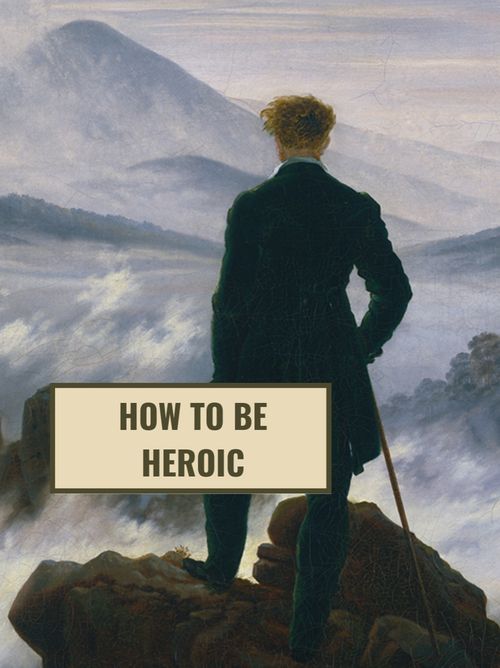The primary trait of a hero
Dec 05, 2021 · 2 mins read
0
Share

Thomas Carlyle was a 19th century Scottish philosopher known for his book On Heroes, Hero-Worship, and The Heroic in History. The book's primary thesis is that the study of history must involve the study of great men who shaped its primary events.
Save
Share
Since the concept of "the hero" is central to the book, Thomas Carlyle goes to great lengths to describe what history-shaping heroes have in common. Above all, they have a "deep, great, genuine sincerity." Let's unpack what he means👇
Save
Share
Carlyle writes that while most people can "walk in a vain show," heroes cannot. Heroes cannot live except in the "awful presence of Reality." This inability to swallow lies, indulge in pretense for social brownie points, and lead an insincere life is the primary trait of a hero.
Save
Share
There's a lot in the world that is "regular, decorous, and accredited by...conclaves" that is nevertheless a lie. Heroes can't abide by views or decisions just because they are common, socially acceptable, or have the experts' approval.
Save
Share
Carlyle writes of the heroic figure: "His sincerity does not depend on himself; he cannot help being sincere!" Being heroic is not a conscious decision - it's a healthy instinct.
Save
Share
Carlyle writes that "the heart remains cold before" stately and dignified men who talk in "measured euphemisms." They don't inspire, they lack a hero's sincerity and passion. They manage the perceptions about reality; they don't master reality itself.
Save
Share
Carlyle describes the opposite of a hero: "to fall into Skepticism, into dilettantism, insincerity." Skeptics replace action with endless questioning, dilettantes replace commitment with permanent dabbling, and insincere people hide cowardice behind an ironic pose.
Save
Share
Carlyle argues that we shouldn't despair if the heroic ideal seems unattainable. A bricklayer can't lay a perfectly perpendicular wall, but the ideal of perpendicularity helps him lay an acceptable and strong wall. The ideal of the heroic plays the same funciton.
Save
Share
Carlyle writes that we are all on a “dark pilgrimage through the waste of time,” and heroic writers give us the light we need. Great writers convince us that we are indeed on a pilgrimage - there's something holy at the end - and shine a light on pitfalls on the way.
Save
Share
Bottom line. The hero must "stand upon things, and not shows of things." The hero respects his time and energy by not expending them upon illusions. His sincerity is the source of his greatness. His unrelenting grip on reality is why his actions have weight.
Save
Share
0